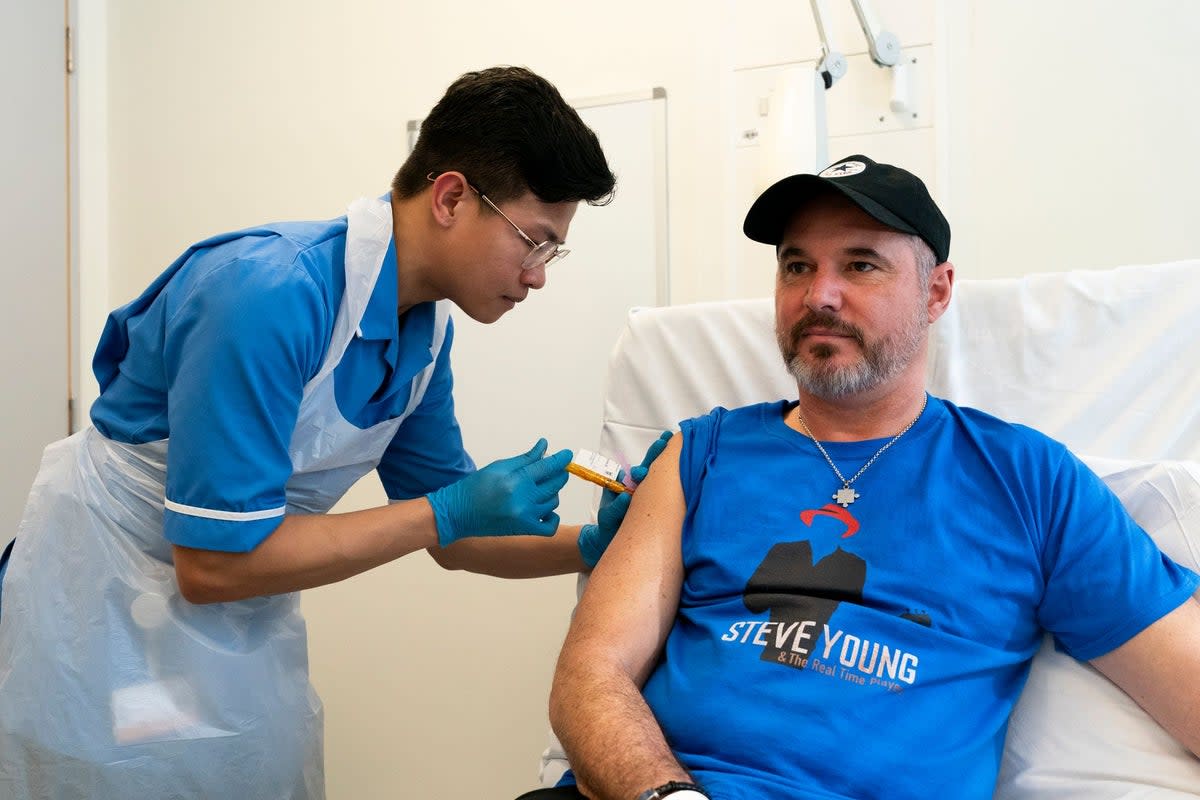World first jab to stop skin cancer trialled in UK - Tech & Science Daily podcast

British patients are set to trial a new jab which it’s hoped could stop some cancers in their tracks.
The mRNA jab is custom-built for each person in just a few weeks, and it works by telling the body to hunt down cancer cells and prevent the deadly disease from coming back.
The “game changer” injection is designed for people with melanoma, but it has the potential to stop lung, bladder and kidney cancer as well.
A stage 2 trial of the jab, involving pharma firms Moderna and MSD, found it dramatically reduced the risk of the cancer returning in melanoma patients, and now this final phase 3 trial is being led by University College London Hospitals NHS Foundation Trust.
A team of archaeologists at the University of Portsmouth are the latest experts to explore the bones of an almost full T-Rex skeleton, called ‘Trinity’.
The skeleton is made up of 293 bones, which are from three different T-rexs, which is why it was given the name ‘Trinity’.
The team will collect data on the size and appearance of the bones, the age of the dinosaurs, and any ancient evidence of traumatic injuries and disease.
Megan Jacobs, a PhD student at the university who’s part of the team examining the bones, tells Tech & Science Daily just how big ‘Trinity’ is, and reveals what they hope to discover from the fossils.
New research suggests Vitamin D helps to improve immunity to cancer.
A study in mice showed that the vitamin encourages the growth of a type of gut bacteria which gives the animals better immunity to the disease.
The researchers found mice given a diet rich in Vitamin D had better immune resistance to experimentally transplanted cancers, and improved responses to immunotherapy treatment.
They said this could one day be important for cancer treatment in humans, but we don’t yet know how and why Vitamin D has this effect via the microbiome.
A decade-long study looking into the impact conservation work has on our environment shows it is slowing the decline in biodiversity.
Researchers spent ten years reviewing our efforts to protect nature, and more than half of their research focused on Western Europe, North America, Australia, and New Zealand.
They observed flora and fauna, as well as wildlife including turtles, crocodiles, algae, coral, and more.
The authors of the study said their long-running research, published in the journal Science, is the “strongest evidence to date” that environmental intervention and conservation efforts are working.
Also in this episode:
UK cows not being tested for bird flu despite outbreak in the US, the robot dog that comes with a flamethrower, and brain study set to use Pink Floyd to understand music's impact on the mind.
Listen above, find us on Apple, Spotify or wherever you stream your podcasts.

 Yahoo News
Yahoo News 
